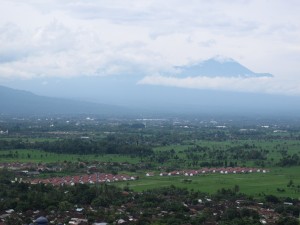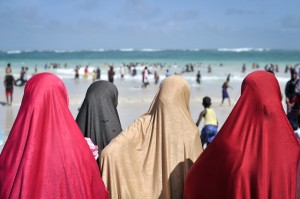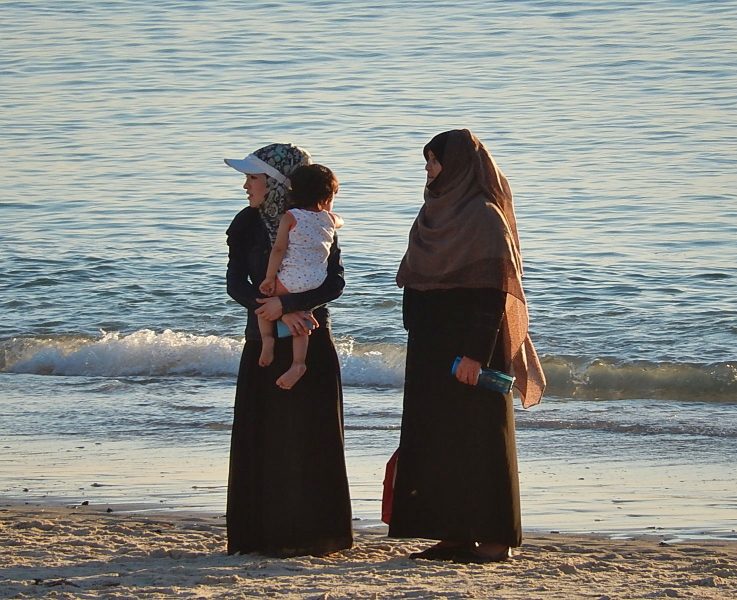As a republic with the world’s largest Muslim population, Indonesia plans to tap the Islamic tourism market by promoting Lombok, one of the lesser-known island getaways, just a short distance from Bali. According to the West Nusa Tenggara Tourism Promotion Board (BPPD NTB), the Government has only just started to promote sharia tourism in Lombok. In the near future, it aims to boost the number of wealthy Middle Eastern visitors; an affluent demographic of people who are likely to bring family members and spend generously while on holiday.
“Truthfully, sharia tourism in Lombok has not developed much because we just started [working on it] this year,” says BPPD NTB board member Lalu Hasanuddin in an interview with Indonesia Expat.
Indonesia’s current lack of promotion is reflected in the number of annual inbound Muslim tourists. Despite housing more than 800,000 mosques, Indonesia is still trailing far behind Malaysia and Thailand when it comes to attracting Muslim vacationers.
Meanwhile, Thailand has been aggressively positioning itself to capture the segment by pushing halal tourism and launching marketing incentives for Muslim-related agencies. In March, tourism minister Arief Yahya told reporters that Thailand is currently attracting 600,000 Muslim tourists every month. Malaysia is pulling in slightly less at 300,000, while Indonesia is managing only 150,000 on average.
According to the MasterCard-CrescentRating Global Muslim Travel Index, in 2014 the Muslim travel industry was worth about US$145 billion. 108 million Muslim travellers represented 10 percent of the global travel economy.
That number is forecast to grow to 150 million by 2020, making up 11 percent of the market with a total expenditure projected to hit US$200 billion.
Muslim tourism will continue to be one of the fastest growing travel sectors in the world. In recent years, Indonesia ranked fourth in terms of inbound Muslim tourist arrivals, with 1.7 million in 2013. Malaysia came out on top with 6.1 million, followed by Thailand with 4.4 million, and Singapore with 3.9 million. However, it’s worth noting that as Indonesia has the largest domestic Muslim population on Earth, these figures do not account for local Muslim citizens who are vacationing within their home country.
Realising the economic potential of Islamic travel, Indonesia’s Tourism Ministry earlier this year claimed the Government would beef up its budget to promote tourism in West Nusa Tenggara, the province where Lombok is situated. It promised to earmark Rp.11 billion (US$823,363) in 2015, up from Rp.6 billion (US$450,000) in recent years. In the grand scheme of things, these amounts can’t move mountains, but they might theoretically take care of small changes that could lead to big impacts. Examples of these may include opening more Muslim-friendly tour agencies and strategically placing halal restaurants in high-traffic areas.
“We are targeting two million tourists in 2015, with one million foreign visitors and one million domestic tourists,” Yahya said in March. According to data from Indonesia’s tourism board, 1.6 million tourists visited the province in 2014, with 30 percent of them coming from overseas.
“Islamic tourism in Lombok is supported by the fact that more than 90 percent of the population in Lombok and West Nusa Tenggara is also Muslim,” says Taufan Rahmadi, head of the province’s tourism board. “Therefore, the lifestyle of the local people is suitable for Muslim travellers.”
Rahmadi believes a predominantly Muslim local population is also a critical element to driving foreign Muslims to Lombok. According to him, sharia tourism is not only about pilgrimages or religious activities, but rather, it is defined as travel that fully complies with Islamic law. This includes, but may not be limited to, the provision of food and beverages that contain no pork or alcohol, the separation of men and women at tourist recreational areas such as swimming pools and spas, and the availability of water sprays or jet washers in toilets.
In Lombok, Muslims can more easily find halal restaurants than they can in Hindu-majority Bali. Additionally, as Lombok is sometimes referred to as “the island of 1,000 mosques,” Hasanuddin claims it is also easier for Muslims to find places to worship each day.
“We also have 11 hotels that have been certified halal. Currently, three more hotels are in development. Therefore, we will have a total of 14 sharia hotels in near future,” says Lalu.
Sharia hotels provide Muslim necessities like halal food, the kiblat sign (direction to Mecca), Qurans, prayer rugs, and prayer time reminders. They also prohibit adult TV channels in the rooms.
Currently, there are 37 certified halal hotels across Indonesia, with 150 still pending approval. As for restaurants, only 303 out of 2,916 have been certified as halal; as many as 1,800 restaurants are still pending halal certification.
The availability of facilities that comply with Islamic law can also be found at other sharia tourism destinations in Indonesia. The Government has declared that nine areas in Indonesia are “officially Muslim-friendly,” including West Sumatra, Riau, Lampung, Jakarta, Banten, West Java, East Java, Lombok, and Makassar.
But there are some distinct selling points that help Lombok stand out from other sharia tourism destinations in the archipelago. “First, we have breathtaking nature,” says Rahmadi. “Second, we have an Islamic culture that is not only religious, but also more tolerant.” Rahmadi adds that Lombok is more accepting of foreigners when compared to other local Islamic tourism destinations like Aceh.
Aceh is the only part of the country where Muslim and non-Muslims are forced to follow sharia, the Islamic legal code. Lombok, on the other hand, despite being majority-Muslim, is characterised by its foreigner-friendly practices. It’s not uncommon to see western tourists enjoying the beach in Senggigi while wearing revealing bathing suits.
“Other than Muslims, we also have Hindunese and people from other religions and we live together in harmony. The people of West Nusa Tenggara are open yet still religious,” explains Rahmadi. “We also educate people to be more friendly to tourists. We make public service announcements for people to uphold honesty and friendliness. These are our marketing tools to make Muslim tourists and others feel more comfortable and safe.”
With an open Muslim society, Hasanuddin says western tourists who want to sunbathe in revealing outfits and relax on the beach with a beer should not have to worry. “The existence of sharia tourism will not kill conventional tourism. On the contrary, it will be the locomotive [to attract a robust tourist trade],” explains Hasanuddin. “Most of the complaints actually come from the conventional tourism industry. Some of these people think that the existence of sharia tourism will erode conventional tourism. But there is already a clear distinction between the two.”
Hasanuddin cites the island of Gili Trawangan off the west coast of Lombok as a prime example of a westernised vacation area that will also not be affected by sharia tourism.
Assuming the central government maintains support and funding, the province’s tourism promotion board says it has more plans for the future to attract Muslims to Lombok.
“For example, there will be special tour guides for sharia tourism. We also push travel agents to offer sharia tours. At the moment, some travel agents already do that by combining visits to beaches with visits to pesantren [Islamic boarding schools] to learn how to recite the Quran,” says Hasanuddin.




